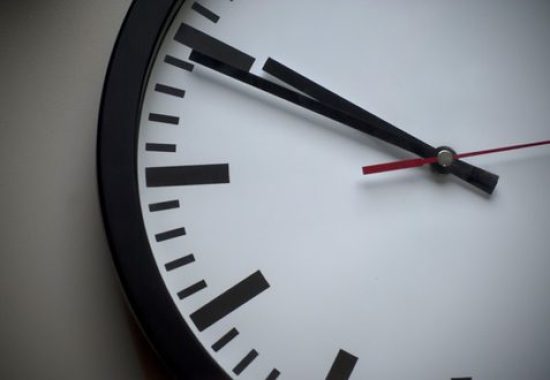
A job interview is your chance to shine, so it’s fair to say you’re not going to get off on the right foot if you rock up 20 minutes late. However, hold-ups happen at the worst possible times. That’s why we’ve crafted a guide on how to ace your job interview even if you’re stuck in traffic when you should be sitting down reeling off your best answers.
So, take your preparation game to the next level, and read on for what to do if you’re late for a job interview.
The moment you think there’s a chance you could be late for the job interview, you should ring the prospective employer. That way, you take charge of the situation and demonstrate how you can deal with a negative scenario in a professional manner.
If you’re running behind schedule, ring the employer at least 15 minutes before you’re due in order to give prior warning. First, explain you’re looking forward to seeing them. Then, let them know you’re running late and apologise.
By ringing the company beforehand, you’ve shown positive character traits by keeping the company informed and resolving an awkward situation.
If you have a valid reason for being late, such as your train breaking down or that encountered heavy traffic because of a collision, touch on this briefly. The recruiter will understand these things happen.
By giving a concise, valid reason, you’ll go some way to showing that your lateness is a quirk of bad luck. You demonstrate how it’s not a reflection on you as an applicant.
Furthermore, by avoiding going into too much detail when giving your reason, you won’t make matters worse by giving a sob story. The recruiter knows you’re late—it’s a difficult situation but they don’t need to hear you moaning, too!
By the time you’ve apologised and briefly explained why you’re held up, you should also tell the recruiter what time you expect to arrive. That way, you’ll manage expectations and show understanding of how the recruiter could be inconvenienced by sitting around wondering when you’ll show up.
When giving your estimated time of arrival, err on the side of caution. Depending on how well you know the area and where you’re held up, add on ten minutes to give yourself some leeway. Be careful, though—don’t admit that you’re adding on time.
Once you finally reach the location of your interview, we recommend taking five minutes to compose yourself. Being late for an interview can cause nerves, but because you’ve allowed for further delays in your estimated time of arrival, you can still take a moment to calm down.
So, when you get to the building, stop for five minutes and slow down your breathing. Get into job interview mode and read over any notes you’ve brought with you.
By doing this, you’ll find it easier to focus on your strongest competencies and why you should get the job, rather than fixating on how you’ve endured a nightmare getting to the venue.
As you approach the person you’ll be meeting with, the pressure is on because you’ve arrived late. So, a positive entrance is crucial if you want to impress.
As ever, offer a firm handshake. Apologise again for being late and do this with a smile so the situation lightens to a degree. By this point, the interviewer knows you’ve encountered hold-ups but they’ve learned how you can handle this in a tactful manner.
As such, staying confident and positive when you enter will help you make a strong start when the odds could already be against you.
Arriving late to a job interview means you’ll have to work harder to impress. In that case, you’ll need to hammer home how dependable you are and why your skills make you a strong fit for the position.
To underline your dependability, tell the interviewer about a time when you took responsibility for a task or excelled when working alone. That way, although you’ve turned up late, you’ll highlight how you can be relied upon to complete duties and that your lateness was a fluke.
Also, you should have an idea of the required skills for the role. Make sure you nail these down in your responses to negate the fact that you turned up late.
Here, you’ll give answers which leave you with a better shot at progressing to the next stage.
Finally, you should also send the recruiter a thank you email to express your gratitude for their time and apologise once more for your lateness.
Keep this to two or three lines, though—brief is better in this case. By sending a thank you email, you’ll show courtesy in acknowledging how the company saw you even though you were late. You’ll end the interaction on a positive note, leaving you with a better chance of sealing the job.
So, being late for a job interview is rarely ideal, but if you can handle this in a professional manner, you could still earn a positive callback.
About the author: Alistair Hendrie writes for UK job board CV-Library, providing the latest career advice on CVs, cover letters, job interviews and work life matters.
Follow us on Twitter, LinkedIn and Facebook for business insights, interview tips, advice and career opportunities.